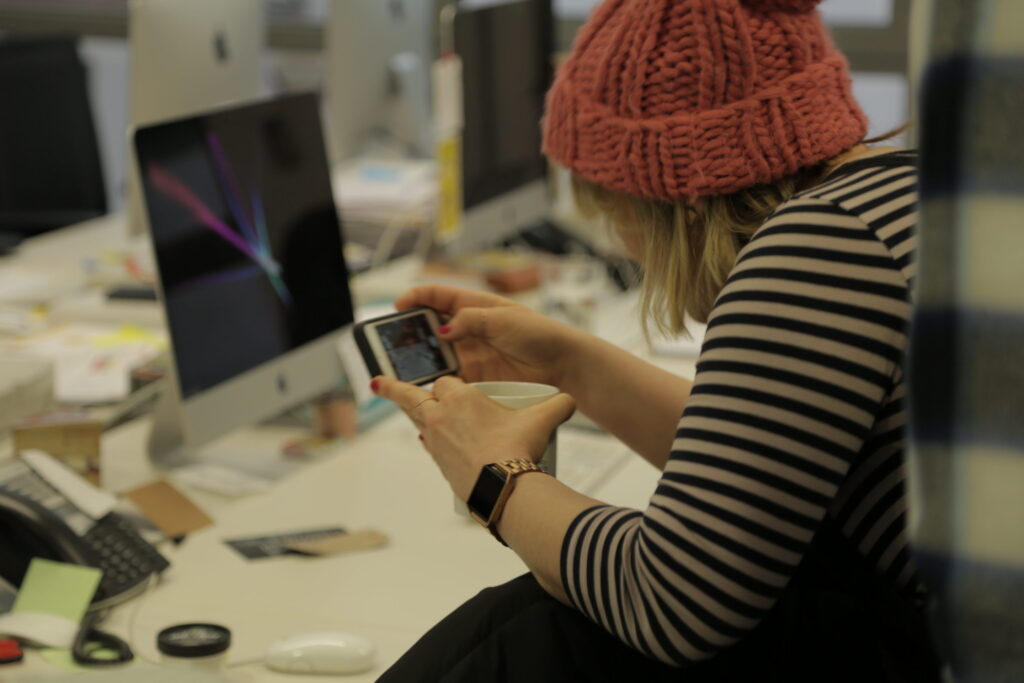In a digital world, it sometimes feel like our human relationships are suffering. But, is this true? What is the nature of our digital relationships? And what does it mean for organisations who want to engage their people?
Ghosting
“I’ve been ghosted”
“Again?’
“Again!”
This recent conversation with a friend is one that I seem to be having more and more these days. ‘Ghosting’ is a term used to describe a specific experience that people have on social media, particularly on dating apps. You’ll be speaking with someone through an app’s private messaging feature, you may have even met up for a few dates, but then suddenly one day they stop talking to you. They completely cut off, practically disappearing off the face of the earth – like a ghost.
Social media sceptics pounce on opportunities like these. They seem to prove the theory that digitally-savvy millennials are selfish, distracted, lazy, rude… the list is endless.
But, are our relationships really suffering from digitisation?
First of all, it’s debatable whether you can qualify the value of human relationships. Are some relationships qualitatively better than others? It’s a tricky question, but I think that we get closer to an answer if we focus on context.
Relationships in Context

We can learn some lessons here from anthropologists, who study human cultures and societies. One of the most important things they do is provide a context for understanding why certain people do, say and believe certain things. The field of Digital Anthropology has become more popular in recent years because anthropologists have seen the need to better understand how humans interact with digital technologies; they are an unavoidable aspect of everyday life for people across the world, both in developed and less developed countries.
Context helps us understand relationships in the digital world because it moves us beyond overly-simplistic, deterministic and, frankly, damaging interpretations. One social media phenomenon to come under intense criticism has been ‘selfies’. Often seen as the epitome of millennial narcissism, selfies can actually be the total opposite of self-indulgence; ethnographic studies by anthropologists have found that many selfies depict groups of friends or colleagues who are sharing an experience. The infamous ‘selfie-stick’ further creates shared experiences, by allowing even larger groups to be included in the picture. One anthropologist suggests that selfies should be renamed ‘groupies’, but that might not catch on…
Digital Disconnect
A focus on context therefore helps us understand the true nature of digital practices and relationships, which can sometimes be surprising. In the case of my friend’s dating app woes, I believe that the problem lies in a lack of context in our understandings and expectations. Dating apps were developed with the purpose of connecting people with similar interests, locations or physical attractiveness. To my knowledge, they were not made to take people beyond the initial connection or conversation that leads to a face-to-face date. However, I think that people are using these apps with the expectation that the relationships developed on them will replicate those played out in person. It would be appalling behaviour to ‘ghost’ someone in person – getting stood up in a restaurant, for example. But, on an app that isn’t intended to take you beyond initial connections, the same social codes and obligations don’t apply. Plus, it’s a lot easier to disappear on an app than in person. The reason why ‘ghosting’ is so upsetting for some people is that there is a disconnect between expectations and reality; they expect a kind of relationship that these apps just aren’t made for.
Am I justifying rudeness? No. But, I think that understanding the context of these digital interactions helps us to see why ghosting happens, and why people are not just upset, but also surprised by it.
Engagement
Our relationships aren’t necessarily suffering from digitisation, they are just playing out at different speeds, scales and in new contexts. To get the most from digital communication, we need to understand it better – rather than simply criticise it. Human beings want basic things like love, appreciation and friendship. Social media allows us to have them with more people than ever, but only if we recognise how and why it’s different.
To find out why context counts for engaging employees, download our Whitepaper on Millennials here.
Loulwa Al Rasheed-Wright
